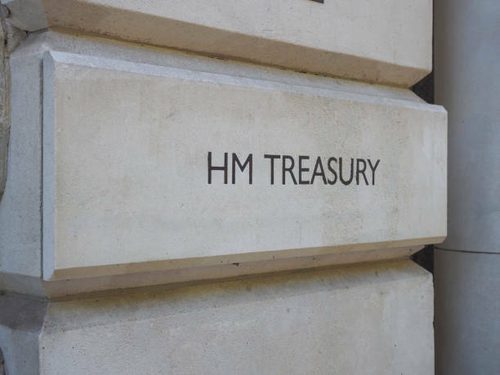
SIGOMA calls for the continuation of the Household Support Fund
Posted on February 22, 2024
Dear Chancellor of the Exchequer,
I am writing to you as Chair of the Special Interest Group of Municipal Authorities (SIGOMA) to call for the Household Support Fund to be extended beyond March 2024.
SIGOMA represents 48 local authorities located in the North, Midlands and South Coast of England. The communities our member authorities serve are typically more deprived, with 44 of our 48 authorities in the lower half of the Deprivation Ranking with 13 of the most deprived decile being SIGOMA members, including the top 6 most deprived.
SIGOMA received 32% of the Household Fund in 2023-24, over £250 million. The Household Support Fund has become a lifeline for the communities our local authorities represent, helping the most deprived and vulnerable households access the essentials and support they need.
Our members have been able to utilise the Household Support Fund to provide support that is tailored to the needs of their local community.
For example, in Derby the Household Support Fund has been used to set up 46 ‘warm welcome’ community venues, providing residents with information and support with food and energy.
In Blackburn with Darwen, the funding has been used to set up a School Food Grant, which has supported schools to offer more children free healthy snacks, set up breakfast clubs and provide subsidised meals to vulnerable children. This has already had a positive impact on pupils, with schools reporting an increase in concentration and good behaviour.
In Kirklees, their Household Support Fund has been used to support foodbank provision. These foodbanks have been able to provide more than food with the additional funding, offering residents advice on welfare benefits with the aim of empowering them with the resources they need to improve their overall wellbeing.
In Southampton, the funding has been used to support low-income households with food after a survey early last year found 41% of residents reporting food insecurity.
Other schemes our members have put in place include free school meals in the school holidays; supermarket vouchers for residents on low incomes; energy vouchers; new boilers for residents; the provision of white goods, carpets, bedding and furniture; cost of living payments for residents on low incomes and support for tenants to ensure security of tenure.
As a result, our members have supported hundreds of thousands of households through the cost of living. In Liverpool, the council has been able to call upon its existing Poverty Action Group, a partnership between council departments and external agencies such as Citizens Advice, Feeding Liverpool and End Furniture Poverty, to deliver support through the Household Support Fund to over 140,000 households via 16 separate initiatives.
In Rochdale, over 24,000 households have been supported through the schemes funded by the Household Support Fund.
And in Bolton, 200 families have been supported over a 3-month period to buy the essentials they need for a new baby. In Barnsley, the average household applying to the Household Support Fund has benefitted from £685 for housing costs and £125 for energy costs.
These numbers are not insignificant, and the end of the Household Support Fund would mean the end of the vital support these households have depended on.
But through the implementation of their Household Support Fund schemes, councils have provided much more than short-term, emergency support for residents. Local authorities have used this funding as an opportunity to address the long-term needs of residents.
For example, expanded welfare and benefits advice in Salford, has brought in financial gains for residents totalling £50,000, providing those households with the resources they need to put themselves on a more sustainable footing.
And in Newcastle, the Household Support Fund has been delivered closely with local partners. Only 3% of applications through these advice agency partners ended with the agency planning to take no further action to support the resident beyond the Household Support Fund application, indicating that residents are receiving additional support to address their long-term needs.
Despite this long-term help, our members are continuing to see an increase in demand for support, with new residents approaching them for assistance.
The need for the Household Support Fund will not end in March 2024.
But our members will not have the funding required to plug the gap left by the Household Support Fund were it to end in March 2024. They will have to end the schemes they have put in place and residents will no longer be able to access the support that has been a lifeline to so many households.
In Durham, the cessation of the Household Support Fund would reduce actual support across residents by over £9 million. Along with the loss of the Government’s cost of living payments, this is a loss of income of up to £900 per eligible individual.
SIGOMA members have seen their funding cut by government in real-terms by 23.3% since 2010-11. A lack of adequate funding and tightly squeezed budgets mean that funding such as the Household Support Fund is pivotal in providing the most basic essentials to residents.
The impact of ending the Household Support Fund would be disastrous. A failure to continue the Household Support Fund will leave the communities our members serve facing hardship and will squeeze local authority budgets even further as demand for other services increase in the absence of support through the Household Support Fund.
We urge you to make the continuation of the Household Support Fund a priority in the upcoming Spring Budget. Otherwise, our members, serving the most deprived communities, will be the ones forced to pick up the cost for the harmful consequences of ending the Fund.
Yours Sincerely,
Cllr Sir Stephen Houghton CBE
Read coverage of our letter in the Municipal Journal.